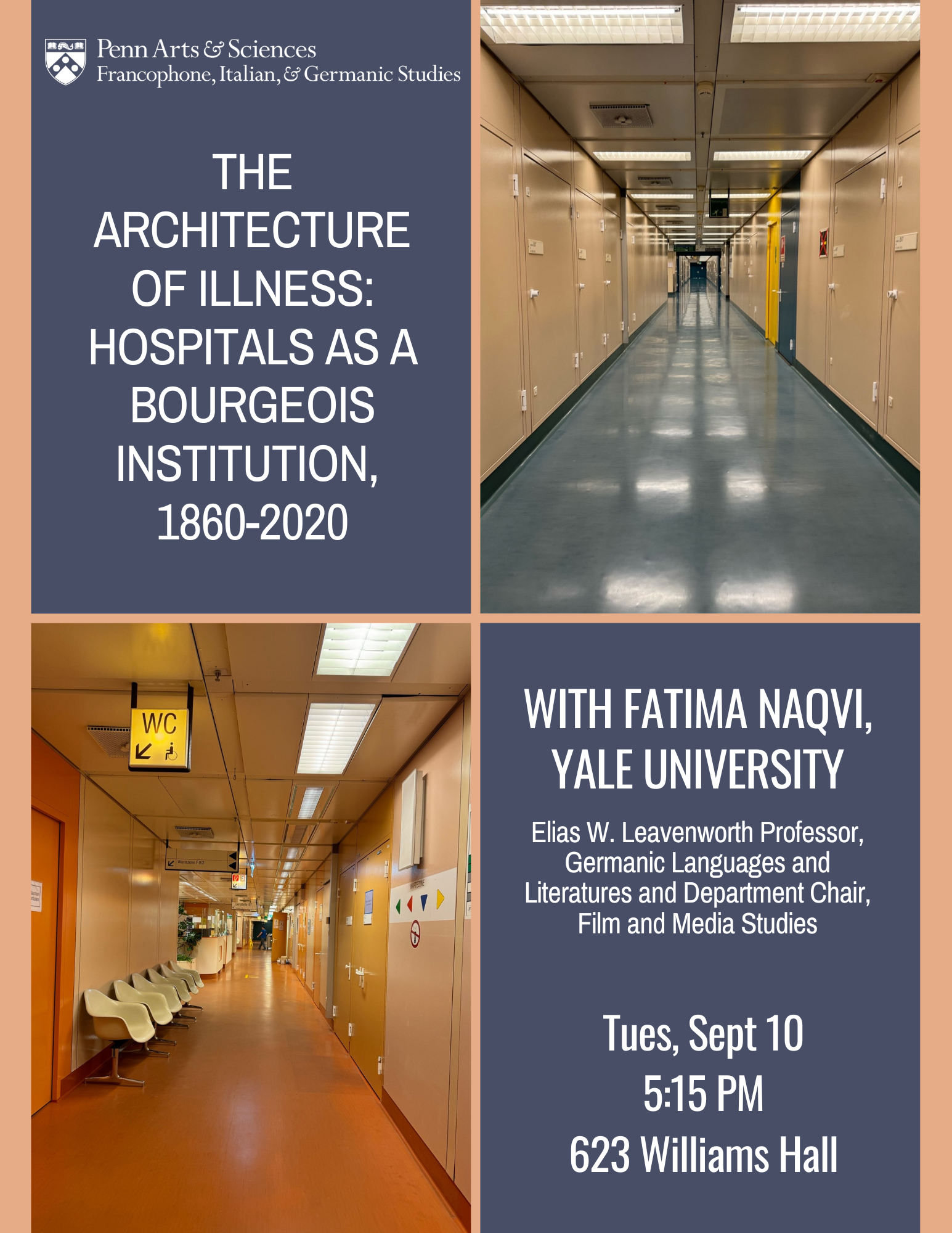Wolf Humanities Conference Room, 623 Williams Hall

Hospitals only became an institution for the middle class in the early 20th century. In Austria-Hungary, the construction of clinics boomed from the 1860s onward. The modern hospital, however, was viewed with mixed feelings from the outset. This talk examines the skeptical attitudes towards hospitals that accompanied their ascendance, beginning with works by authors Arthur Schnitzler, Robert Musil, and Rainer Maria Rilke. Over time, new architectural paradigms changed the hospital experience and the way artists reflected on it. The second part of the talk takes us from the pavilion architecture around 1900 to the mega-structures of the post-1945 period, using literary works by Thomas Bernhard and films by Nikolaus Geyrhalter. The architecture of illness with its current fetishization of technology has important implications for how we perceive sickness—and health—today.
Fatima Naqvi is Elias W. Leavenworth Professor of German and Film and Media Studies (FMS); she is currently chair of the FMS program. Her work is situated at the intersection of literature, film, and architecture.

 Germanic Languages and Literatures
Germanic Languages and Literatures